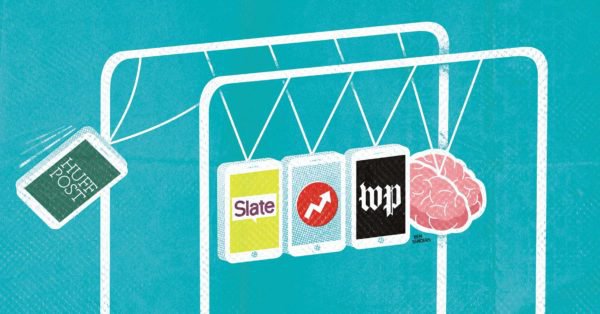A compulsive audience and a complicit news media - Columbia Journalism Review

my notes ( ? )
if we are what and how we read, then our thinking will mirror the scattered and shallow tendencies of Web browsing.... Every time you check your phone... what you gain is a hit of stimulation, a neurochemical shot... can induce anxiety and depression and reduce our ability to empathize.
The internet is far too vast to weigh all of its virtues against its vices. Media leaders can ask a much simpler question: When is a distribution method that harms our customers’ brains no longer an acceptable cost of doing business?
a collective action problem: Companies might not want to exploit mental weaknesses to extend time-on-screen, but competition demands it. Attention-based economics are the rule of the internet ... “a continuum of harm” on the Web, from the stressful deceit of clickbait articles to the unchecked harassment on social media
One of the jobs of [reading] is to dislodge us from our present focus. Conversely, a lot of social media is obsessed with the idea of what’s happening right now. To me, this is a horrible design.
Read the Full Post
The above notes were curated from the full post www.cjr.org/special_report/news_media_health_screens_brain_cost_business.php?utm_source=Daily+Lab+email+list&utm_campaign=34c5bb15d9-dailylabemail3&utm_medium=email&utm_term=0_d68264fd5e-34c5bb15d9-395968141.Related reading
More Stuff I Like
More Stuff tagged society , news , social media , psychology , fomo , addiction , design , health
See also: Social Media Strategy , Content Creation & Marketing , Online Architecture , Communications Tactics , Psychology , Social Web , Media